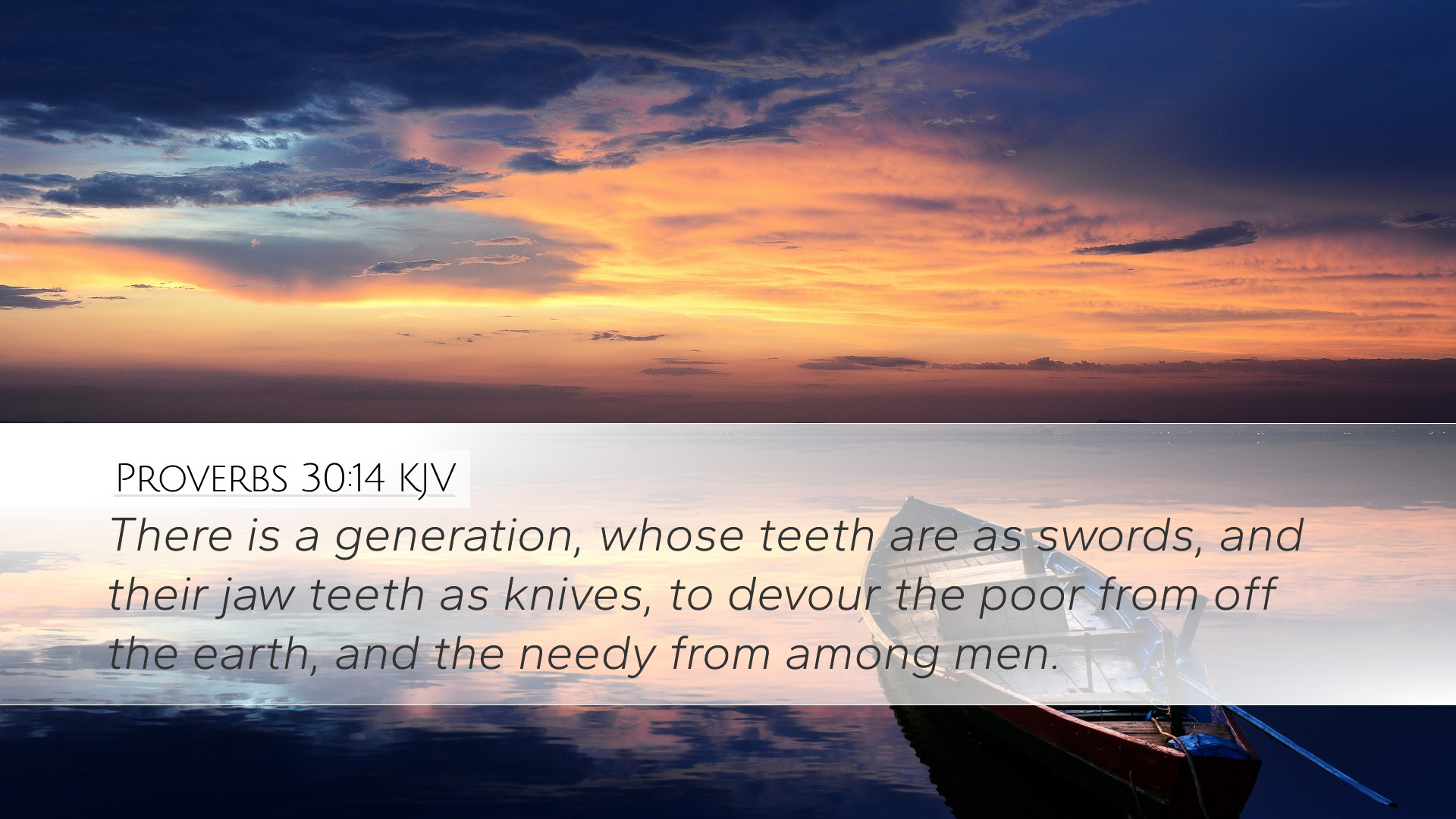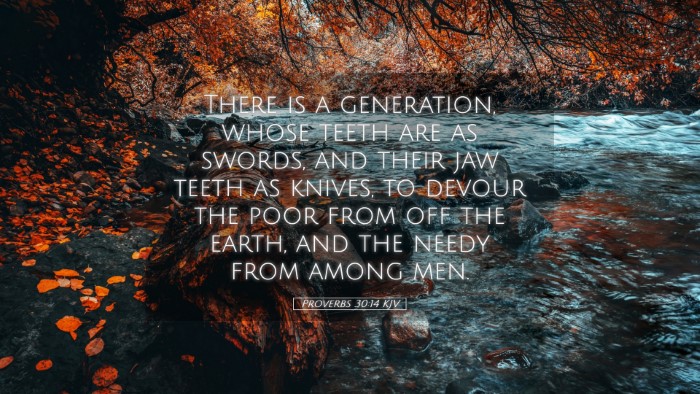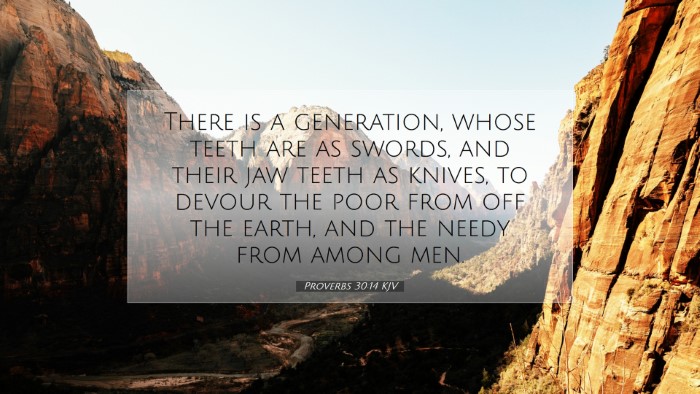Commentary on Proverbs 30:14
Proverbs 30:14 states:
"There is a generation that teeth are like swords, and their jaw teeth as knives, to devour the poor from off the earth, and the needy from among men."
Introduction
This verse introduces a poetic and vivid metaphor that serves as a critique of certain societal behaviors and attitudes. In examining this passage, we draw insights from several esteemed public domain commentators including Matthew Henry, Albert Barnes, and Adam Clarke.
Contextual Overview
The Book of Proverbs is primarily a collection of wise sayings and observations that provide guidance for living a righteous life. Proverbs 30 is attributed to Agur, who imparts wisdom that combines observations of humanity with profound spiritual truths.
Commentary Insights
1. The Nature of the “Generation”
Henry notes that the phrase “a generation” signifies a particular class of individuals characterized by their destructive traits. This is reflective of a recurring theme in Proverbs, which often contrasts the wise and the foolish. Agur's observation highlights a moral decay present within society.
2. Symbolism of Teeth as Weapons
Teeth being likened to swords and knives is packed with rich symbolism.
- Predatory Nature: Barnes explains that this imagery portrays a predatory group that aims to consume the vulnerable. The metaphor of sharp teeth underscores the ferocity with which they engage in exploitation.
- Destruction and Devouring: This devouring reflects not only a physical appetite but also an insatiable greed that pits the powerful against the powerless.
3. Socioeconomic Implications
Agur's message can be seen as a cautionary tale regarding social ethics. Clarke emphasizes the urgency of recognizing and combatting systems that allow such predatory behavior to thrive, especially within societal structures.
4. The Poor and Needy
The focus on “the poor” and “the needy” indicates a divine concern for those who are marginalized.
- God’s Justice: The frequent biblical theme that God stands as a defender of the poor is echoed in this verse. Henry reiterates that while society may overlook the impoverished, God sees their plight and will not allow it to go unpunished.
- Moral Responsibility: The verse demands a moral examination of societal commitments to the welfare of the disadvantaged—challenging the faithful to advocate for justice and mercy.
5. Lessons for Contemporary Society
In modern times, this verse serves as a poignant reminder of the ethical implications of wealth disparity.
- Human Responsibility: The church and individual believers are called not to merely acknowledge the existence of injustice but to actively engage in root-cause resolution.
- Spiritual Vigilance: There is a warning against becoming like the “generation” described—lusting after power and wealth at the expense of others.
Conclusion
Proverbs 30:14 is a powerful reminder of the stark realities regarding greed and the exploitation of the vulnerable. Through the insights of Henry, Barnes, and Clarke, readers are encouraged to reflect upon their societal roles, emphasizing a commitment to justice, mercy, and integrity.
Agur’s words challenge not only individual hearts but also collective societal frameworks, pressing believers to act in accordance with God’s justice—observing, standing with, and providing for the poor and needy whilst rejecting the destructive tendencies of exploitation.


